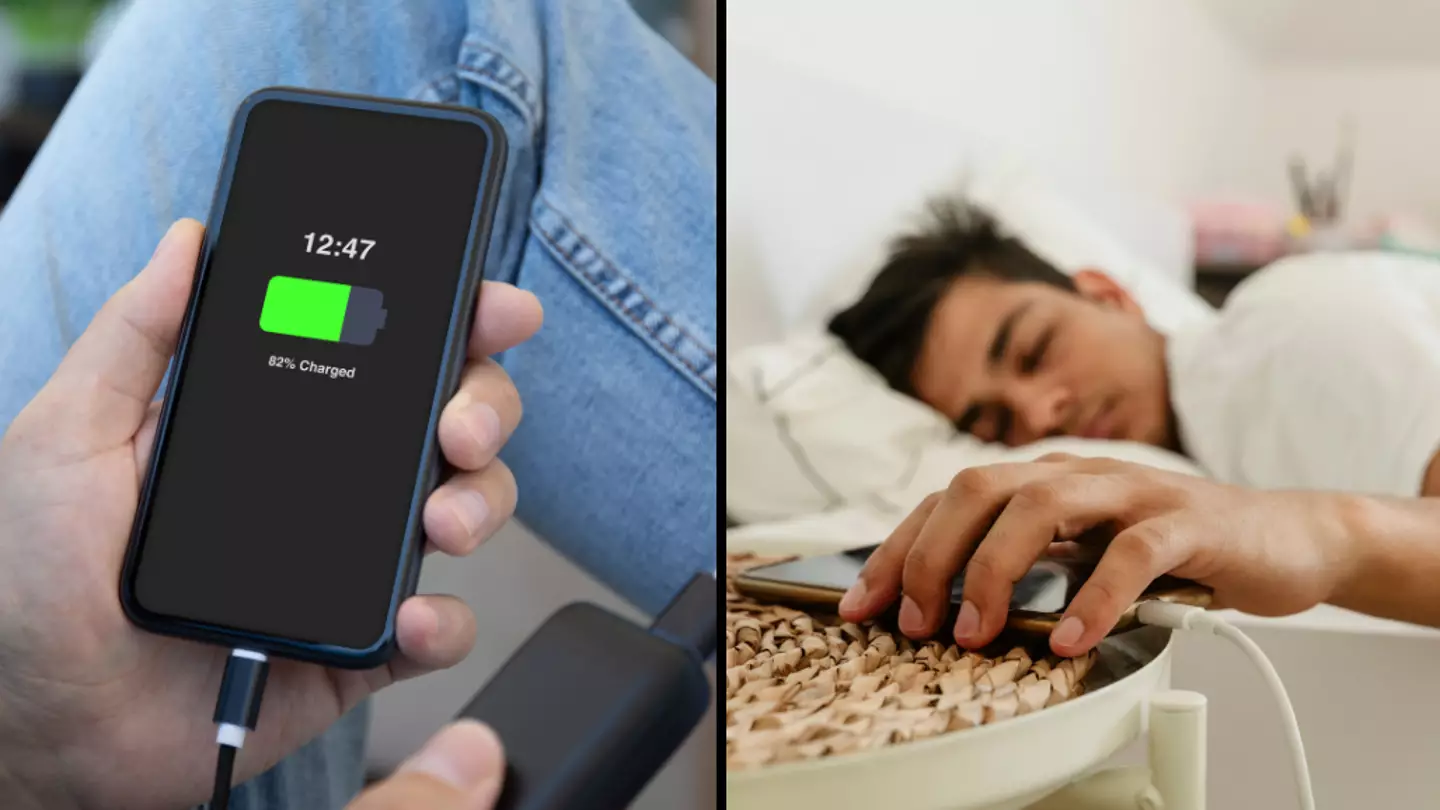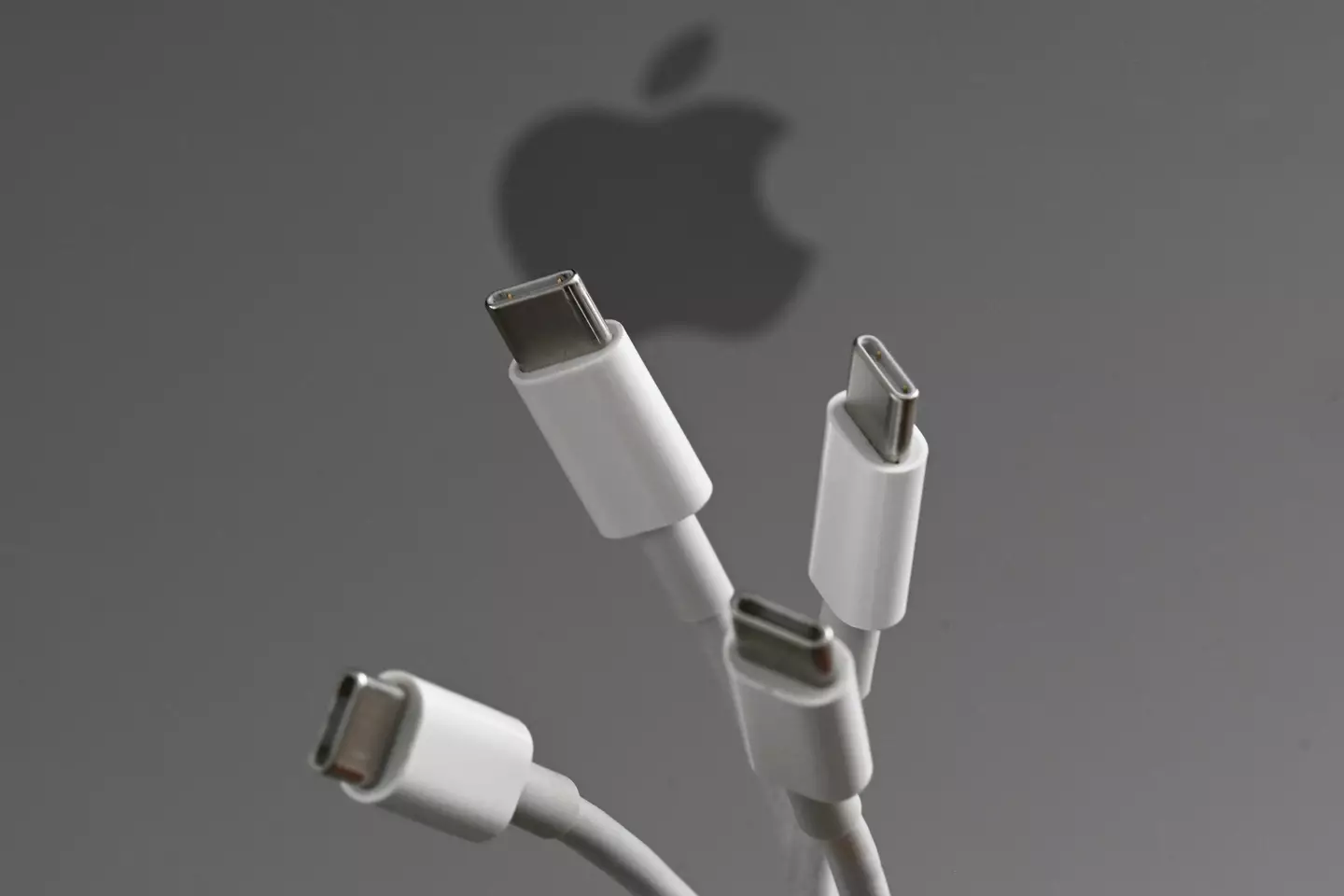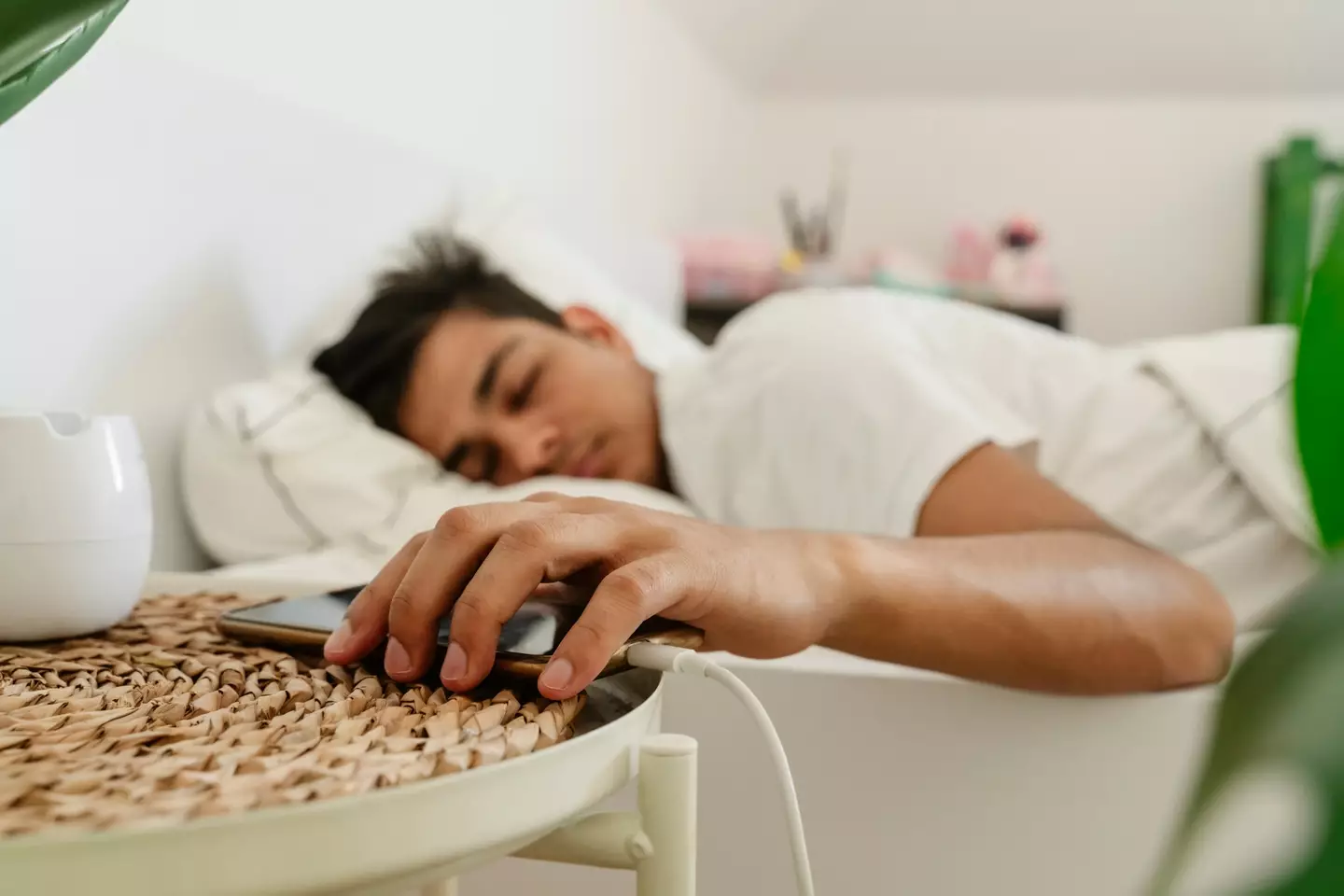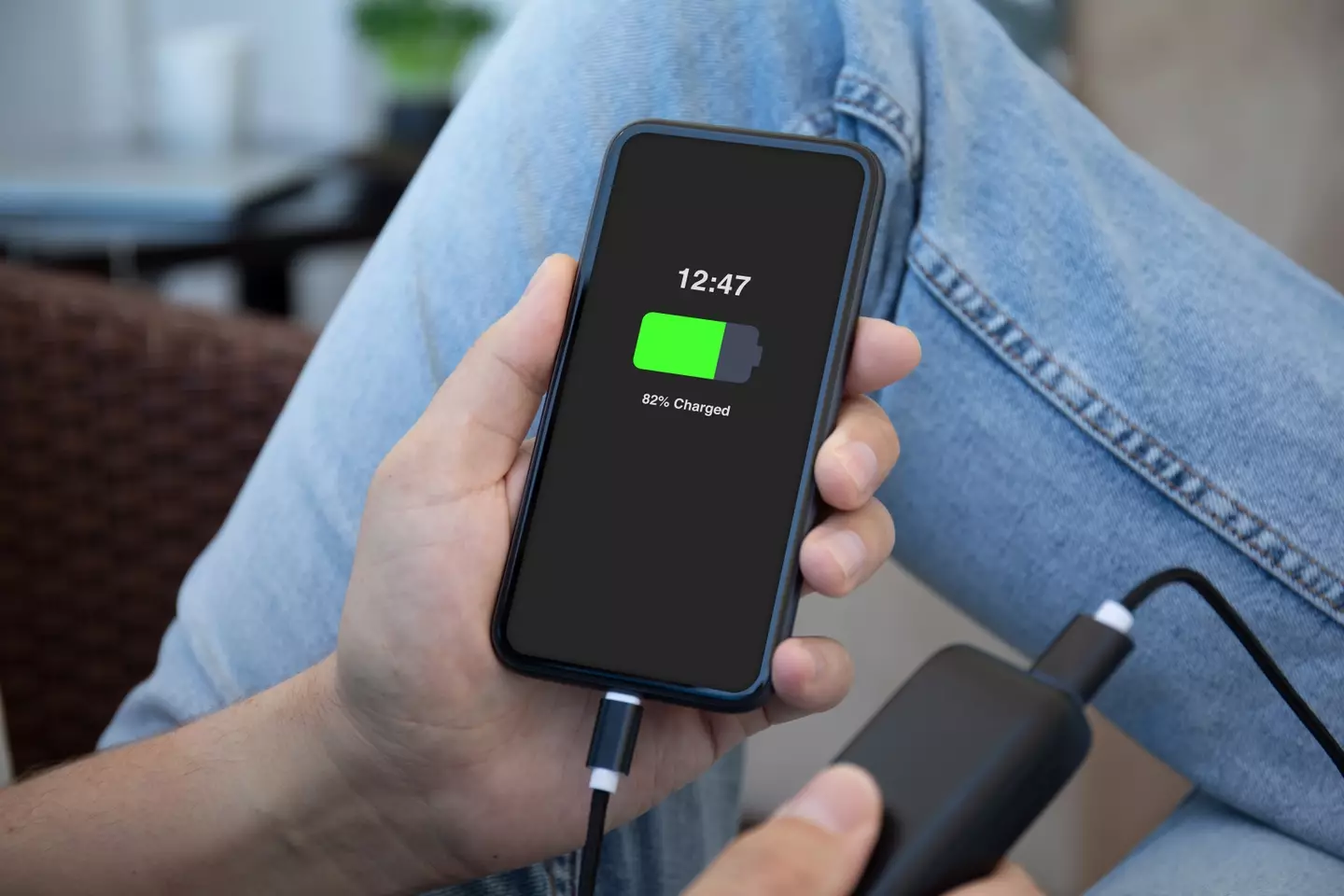
It is an act millions of us do every single evening, but one tech expert has explained why you should never charge your iPhone or Android smartphones overnight.
We've all been there. Your phone is on five percent as you chill on the sofa after a long day at work, before you watch a bit of Netflix after it finally dies out, knowing you'll plug it in overnight ready for the next day ahead.
But it isn't the best way to charge your phone. Like, not even close to being the way you should be topping up the battery.
And it is a little more than that, with the idea of letting your phone completely die out before being pumped back up to the max one of the worst things you can do with the handset, too.
Advert
One tech expert, Max Freeman-Mills, revealed why you should avoid charging your phone overnight. And while saying it isn't 'criminally' bad if you, for example, do plug it in from midnight to 7am, if you can, aim to charge it at other points and locations during your day.

The reason for this is the battery that is inside the vast majority of smartphones and how that device works best.
In an article with the Press Association, he said: "Millions of us probably all charge our phones the same way – plugging them in when we go to sleep, then unplugging them in the morning.
"While this isn’t criminally bad, it’s not necessarily the best way to charge where battery performance is concerned.
Advert
"Lithium-ion batteries, which the overwhelming majority of phones use, actually degrade more quickly if they’re regularly charged to their absolute maximum and then drained to completely empty. A much healthier situation for them is if they bounce between being nearly empty and nearly full – so you don’t want to leave them on fully charged for too long (like the second half of each night’s sleep)."

He added: "iPhones and many Android phones now have charging smarts built-in to alleviate this problem by pausing charging until just before you get up, but you can help this by charging more consciously – for example, at your desk while you work in the morning, rather than overnight."
The lithium-ion batteries that power smartphones degrade due to a number of reasons including their charging patterns, temperature changes, and the time they've used for.
So, when a phone is plugged in overnight, it means that the phone is getting an unnecessary boost. If you plug it in four an eight hour kip, it'll be charging for roughly four times as long as it needs.
Advert

It's also not the best from a safety point of view. While most phones will stop charging once they reach 100 percent battery to prevent overheating, you are likely to have numerous apps that are still running in the background.
The battery will therefore keep dropping to 99 percent before being topped up in something called 'trickle charging', which can can wear a battery down over time.
Ritesh Chugh, an associate professor in Information and Communications Technology at CQUniversity Australia, has previously said: "Trickle charging can wear a battery down over time. That's why many manufacturers have features to regulate it.
Apple's iPhones offer functionality to delay charging past 80 per cent. Samsung's Galaxy phones provide the option to cap the charge at 85 percent."